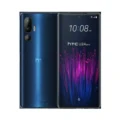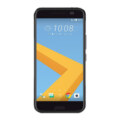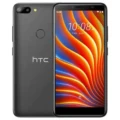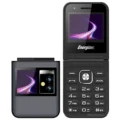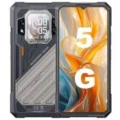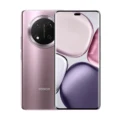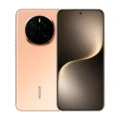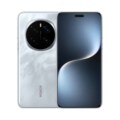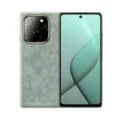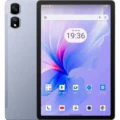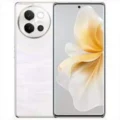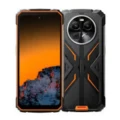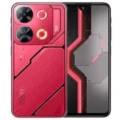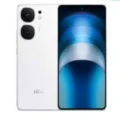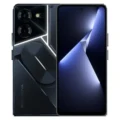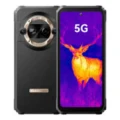HTC Exodus 1
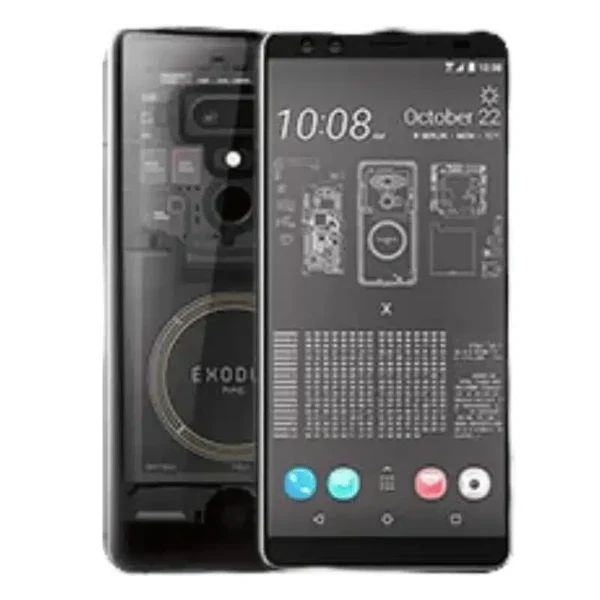

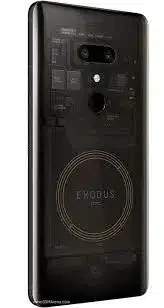
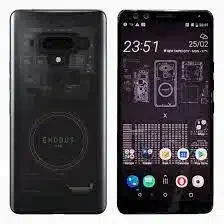
- : 6GB RAM Snapdragon 845
- : 6.0" 1440x2880 pixels
- : 3500mAh 18W
- : 16MP 2160p
HTC Exodus 1: Your Secure Crypto Wallet, Reimagined
A New Era of Crypto Security
The HTC Exodus 1 isn’t just a smartphone; it’s a revolutionary device that seamlessly blends cutting-edge technology with robust security features. Designed to empower individuals to take control of their digital assets, the Exodus 1 offers a secure and user-friendly platform for storing, managing, and transacting cryptocurrencies.
Uncompromising Security
At the heart of the Exodus 1 lies its advanced security architecture. The device incorporates a secure enclave, a dedicated hardware component that isolates sensitive cryptographic operations, protecting your private keys from potential vulnerabilities. This, coupled with a tamper-resistant design, ensures that your crypto assets remain safeguarded.
Zion: Your Personal Crypto Vault
The Exodus 1 comes equipped with Zion, a built-in cryptocurrency wallet that provides a secure and intuitive way to manage your digital assets. So, with Zion, you can easily buy, sell, and store a wide range of cryptocurrencies, all within the confines of your device.
Blockchain Integration
The Exodus 1 is deeply integrated with the blockchain ecosystem. It supports decentralized applications (DApps), allowing you to interact with a variety of blockchain-powered services, such as decentralized exchanges and gaming platforms. Additionally, the device’s open-source nature fosters innovation and community-driven development.
A Flagship Smartphone Experience
Beyond its security features, the Exodus 1 delivers a premium smartphone experience. It boasts a stunning display, powerful performance, and a sleek design. Whether you’re exploring the world of cryptocurrencies or simply enjoying your favorite apps and games. So the Exodus 1 offers a seamless and enjoyable user experience.
Embrace the Future of Crypto
The HTC Exodus 1 is more than just a phone; it’s a gateway to the future of finance. By combining cutting-edge technology with robust security, Exodus 1 empowers you to take control of your digital assets and also embrace the decentralized revolution.
Remember, the best phone depends on your individual needs and priorities!
Specs
Network
| 2G Network GSM 850 / 900 / 1800 / 1900 - SIM 1 & SIM 2 (dual-SIM) CDMA 800 / 1900 |
GSM 850 / 900 / 1800 / 1900 - SIM 1 & SIM 2 |
| 3G Network |
HSDPA 850 / 900 / 1700(AWS) / 1900 / 2100 |
| 4G Network |
4, 12, 17, 28, 20, 5, 8, 3, 1, 7, 32, 2, 13, 66, 39, 40, 38, 41 |
| Speed |
HSPA 42.2/5.76 Mbps, LTE (5CA) Cat18 1200/150 Mbps |
LAUNCH
| Announced | October, 2026 |
| Status |
Available. Released 2018, December 06 |
BODY
| Dimensions | 156.6 x 73.9 x 8.7 mm (6.17 x 2.91 x 0.34 in) |
| Weight | 188 g (6.63 oz) |
| SIMs SIM (Subscriber Identity Module) is a small card that contains mobile network subscriber's account information. This allows the phone using the card to attach to a mobile network. The SIM card is most commonly associated with GSM and UMTS mobile networks. Moving a SIM card from one phone to another allows a subscriber to switch mobile phones without having to contact their mobile network carrier. SIM cards can also be used by a phone to store limited amounts of data, such as phone numbers and text messages. |
Dual SIM (Nano-SIM, dual stand-by) IP68 dust/water resistant (up to 1.5m for 30 min) |
Display
| Display Type Display Technology => A number of display technologies and types used in mobile phones => TFT (Thin Film Transistor), IPS (In-Place Switching), OLED (Organic Light Emitting Diode), AMOLED (Active-Matrix Organic Light-Emitting Diode), Super AMOLED (an even advanced version of AMOLED), Resistive Touchscreen (Resistive touchscreens contain two layer of conductive material with a very small gap between them which acts as a resistance), Capacitive Touchsceen (Capacitive touchscreen technology consists of a layer of glass coated with a transparent conductor) | Super LCD6 |
| Size | 6.0 inches, 92.9 cm2 (~80.3% screen-to-body ratio) |
| Resolution | 1440 x 2880 pixels, 18:9 ratio (~537 ppi density) |
PLATFORM
| Operating System OS => Every computer system run on a base software called Operating System (OS). Operating System controls all basic operations of the computer (such as smartphone, PDAs, tablet computers and other handheld devices). The Operating System allows the user to install and run third party applications (apps), apps are used to add new functionality to the device. | Android 8.1 (Oreo) |
| Chipset Chipset is a group of integrated circuits designed to perform one or a more dedicated functions, often with real time computing constraints, Popular smartphones are equipped with more advanced embedded chipsets that can do many different tasks depending on their programming. | Qualcomm SDM845 Snapdragon 845 (10 nm) |
| CPU CPU (Central Processing Unit) mostly known as processors, CPU processes instructions in order to carry out certain functions that make your device operate properly. Processors are often described as the brain of computers, smartphones and tablets, Smartphones and tablets rely on processors to carry out their every task, Processors are an incredibly important factor in selecting any type of computing device, including your smartphone. | Octa-core (4x2.8 GHz Kryo 385 Gold & 4x1.7 GHz Kryo 385 Silver) |
| GPU GPU (Graphics Processing Unit) is a single-chip processor designed to rapidly manipulate and alter memory to accelerate the creation of images in a frame buffer intended for output to a display, This includes things such as lighting effects, object transformations, and 3D motion. | Adreno 630 |
MEMORY
| Card Slot Memory Card Slot is a special slot for inserting a memory card. Memory cards allow you to expand the phone's built-in memory, A memory card (sometimes called a flash memory card or a storage card) is a small storage medium used to store data such as text, pictures, audio, and video, for use on small, portable or remote computing devices such as mobile phones, mp3 players, digital cameras. | No |
| Internal | 128GB 6GB RAM UFS 2.1 |
MAIN CAMERA
| Cameras Specs Today’s smartphones come equipped with a very comprehensive set of camera related specifications. Our smartphone, for many of us, has become our primary camera due to it being the one we always have with us. |
12 MP, f/1.8, 1/2.55", 1.4µm, dual pixel PDAF, OIS 16 MP (12 MP effective), f/2.6, 1/3.1", 1.0µm, 2x optical zoom, AF |
| Video | 4K@60fps, 1080p@60/240fps, 1080p@30fps (gyro-EIS), HDR, 24-bit/96kHz stereo sound rec. |
| Camera Features |
Laser AF, Dual-LED dual-tone flash, HDR |
SELFIE CAMERA
| Cameras Specs Today’s smartphones come equipped with a very comprehensive set of camera related specifications. Our smartphone, for many of us, has become our primary camera due to it being the one we always have with us. |
8 MP, f/2.0, 1/4.0", 1.12µm 8 MP, f/2.0, 1/4.0", 1.12µm |
| Features |
HDR, panorama |
| Video | 1080p@30fps |
SOUND
| Loudspeaker | Yes, with stereo speakers |
| 3.5mm jack |
No 32-bit/384kHz Hi-Res audio |
COMMS
| WLAN |
Wi-Fi 802.11 a/b/g/n/ac, dual-band, Wi-Fi Direct |
| Positioning |
GPS, GLONASS, GALILEO, BDS |
| Bluetooth Bluetooth is a wireless communications technology for exchanging data between mobile phones, headsets, computers and other network devices over short distances without wires, Bluetooth technology was primarily designed to support simple wireless networking of personal consumer devices. | 5.0, A2DP, aptX HD, LE |
| Infrared Infrared connectivity is an old wireless technology used to connect two electronic devices. It uses a beam of infrared light to transmit information and so requires direct line of sight and operates only at close range. | |
| USB | USB Type-C 3.1 |
| NFC NFC (Near field communication) is a set of standards for smartphones and similar devices to establish peer-to-peer radio communications with each other by touching them together or bringing them into proximity, usually no more than a few inches. | |
| Radio |
Features
| Sensors Sensors are electronic components that detects and responds to some type of input from the physical environment. The specific input could be light, heat, motion, moisture, pressure and location, The output is generally a signal that is converted to use in computing systems, a location sensor, such as a GPS receiver is able to detect current location of your electronic device. |
Fingerprint (rear-mounted), accelerometer, gyro, proximity, compass Zion crypto wallet Secure Enclave Social Key Recovery (key sharding) dApps (decentralized apps) |
BATTERY
| Battery Type Battery Type => Cell phones run on various kinds of batteries depending on the manufacturer, phone size or shape and features. There are basically four types of cell phone batteries => Lithium Polymer, Lithium Ion, Nickel Metal Hydride and Nickel Cadmium. | Li-Ion (Lithium Ion) |
| Capacity Battery Capacity is a measure (typically in Amp-hr) of the charge stored by the battery, and is determined by the mass of active material contained in the battery. The battery capacity represents the maximum amount of energy that can be extracted from the battery under certain conditions. | 3500 mAh |
| Placement | non-removable |
| Charging The functionality responsible for recharging batteries in portable devices, such as mobile phones, significantly influences both battery lifespan and the practicality of daily product usage.The charging process, encompassing factors like voltage, current, and completion actions, is contingent upon the battery's size and type.Contemporary battery chargers dynamically adjust charging parameters based on the battery's current charging state. Charging an empty battery poses no safety risk, allowing for a quicker charging process. Consequently, many charging speed benchmarks, including ours, specify the battery level achieved after a 30-minute session on an empty battery.Standard chargers with a power output of 5V/1A, equivalent to 5W, serve as a baseline, with anything surpassing this speed classified as quick or fast charging. | 18W wired, QC3, 50% in 35 min (advertised) |
MISC
| Colors |
Black |
| Price |
About BTC 0.15/ETH 4.78(crypto curr) |
TESTS
Reviews
Disclaimer Note
We strive to maintain accurate and up-to-date content on our website for general information purposes only. Please refrain from using the material for business, legal, or any other decisions.


